As the old saying goes, “The whole is more than the sum of its parts.”
The same is true for interior design, which is essentially simply an illusion produced by successfully balancing various components.
Consider this: knowing about the ingredients in your favorite recipes can help you perfect the art of cooking. Learning about the design components that go into your preferred styles can help you master decorating in the same manner.
The art of interior design may seem to be easy, particularly because most homeowners add personal touches to their home’s décor without giving it a second thought about how it affects the overall attractiveness.
However, if you consult with a qualified interior designer, they will usually tell you that there are seven main components of interior design and that you must constantly strike the proper balance between them for the best results.
Interior Design’s 7 Basic Elements and Principles
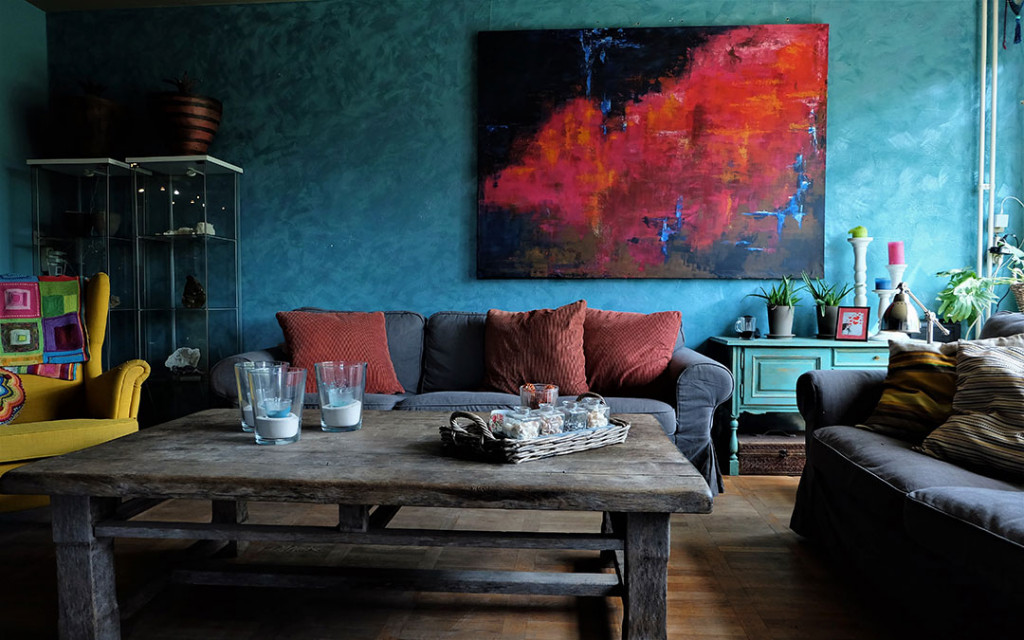
The following are the seven main components of interior design:
- Space
- Line
- Form
- Light
- Color
- Texture
- Pattern
Let’s take a closer look at these seven design aspects.
SPACE
One of the most essential ideas in interior design is space. It refers to the three-dimensional living area that must be decorated, which includes the height, length, and breadth of a room.
The available space should be filled with furnishings that are appropriate for the room’s purpose and functioning.
Space, on the other hand, maybe both beneficial and bad. Negative space refers to empty spaces and barren regions, whereas positive space refers to furniture and décor.
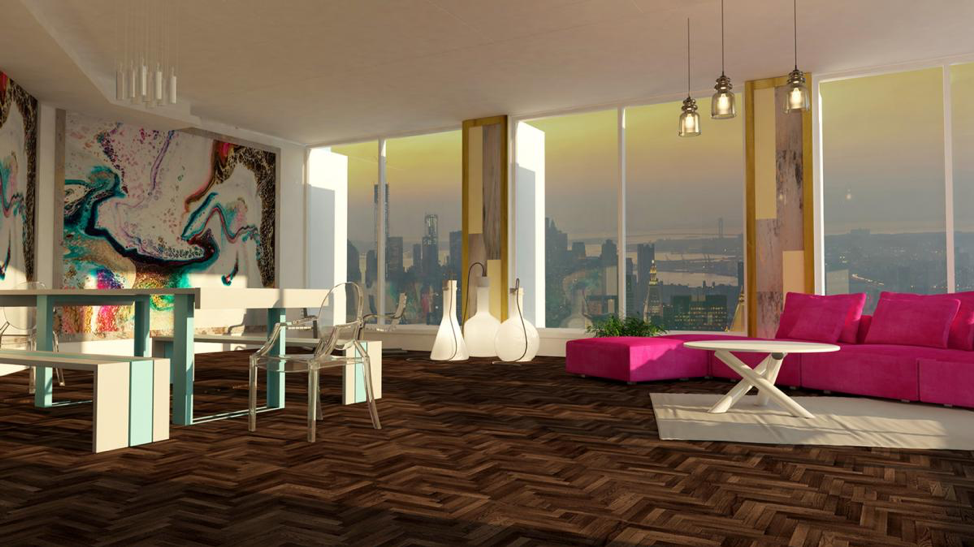
To obtain the greatest outcomes for your home’s interior, you need to find the proper balance between these two.
A well-balanced space is neither too crowded nor too sparse, and it allows you flexibility depending on the interior design style you select.
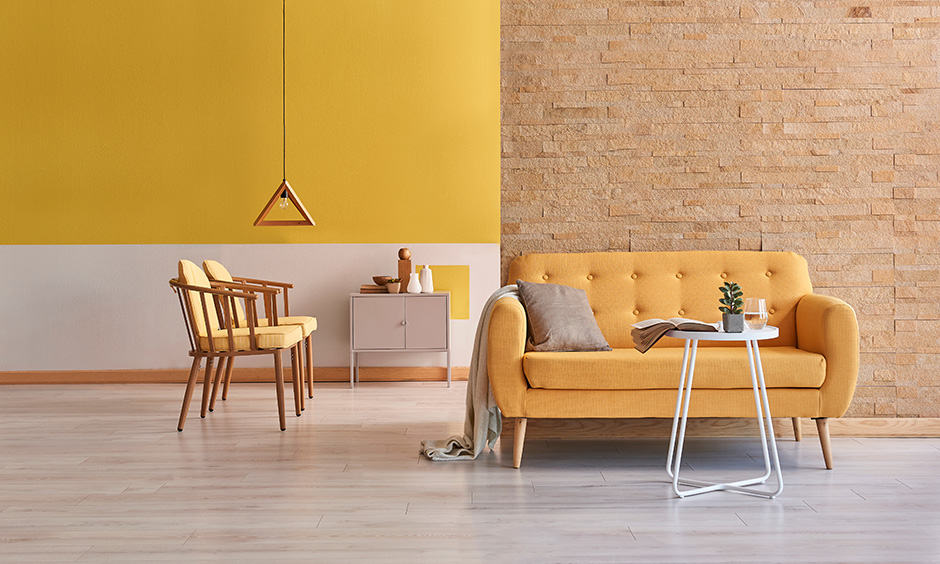
Minimalist interiors, for example, emphasize negative space, while eclectic décor emphasizes positive space.
The appropriate quantity of either area, on the other hand, is ultimately determined by the usefulness you want the room to provide.
LINE
The furniture limits and structural design of your space include a variety of horizontal, vertical, and dynamic lines.
Each of these kinds has a function, and when combined, lines assist form the space and lead your eye across it, making it visually appealing via the use of unity, contrast, and harmony.
Horizontal lines, which are often formed by tabletops, beds, chairs, and other surface surfaces, may make a space seem larger while directing your attention to a focal point in the room.
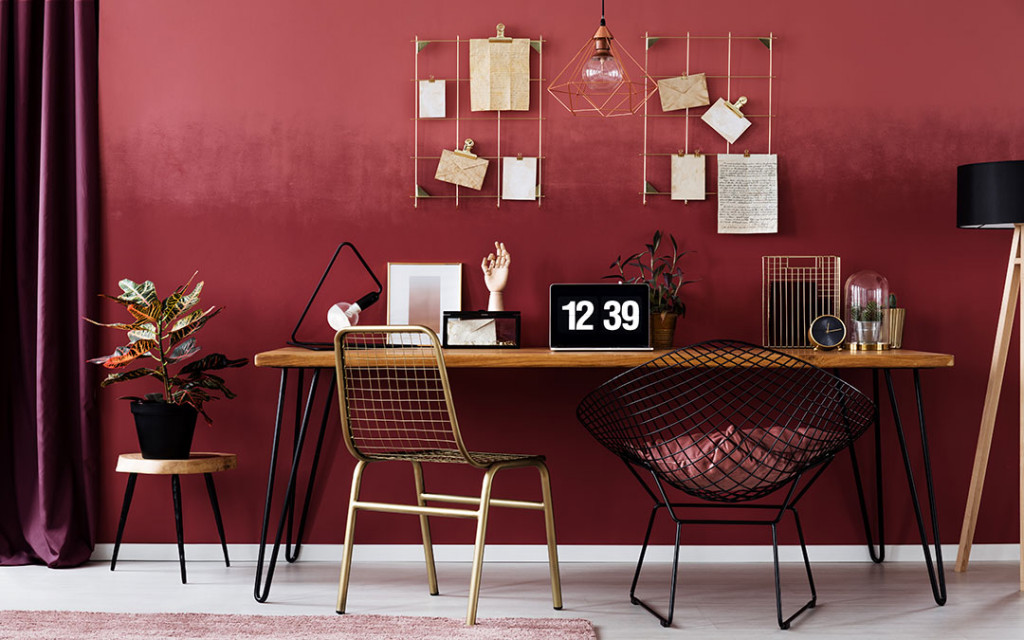
An overabundance of horizontal lines, on the other hand, may make a room seem uninspired or dull. Vertical lines are reflected by windows, doors, and cabinets, making the space seem higher than it really is.
However, employ vertical lines with caution since not everyone enjoys sitting under an illusory high ceiling. Horizontal lines provide a sense of stability, security, and efficiency to the space, while vertical lines add a sense of freedom, strength, and spaciousness.
Meanwhile, dynamic lines include angular lines, typically produced by a staircase, that give drama to the interior, as well as curving lines seen in sofas, windows, or archways that soften the sharp angles and rigidity of the other furniture in a space.
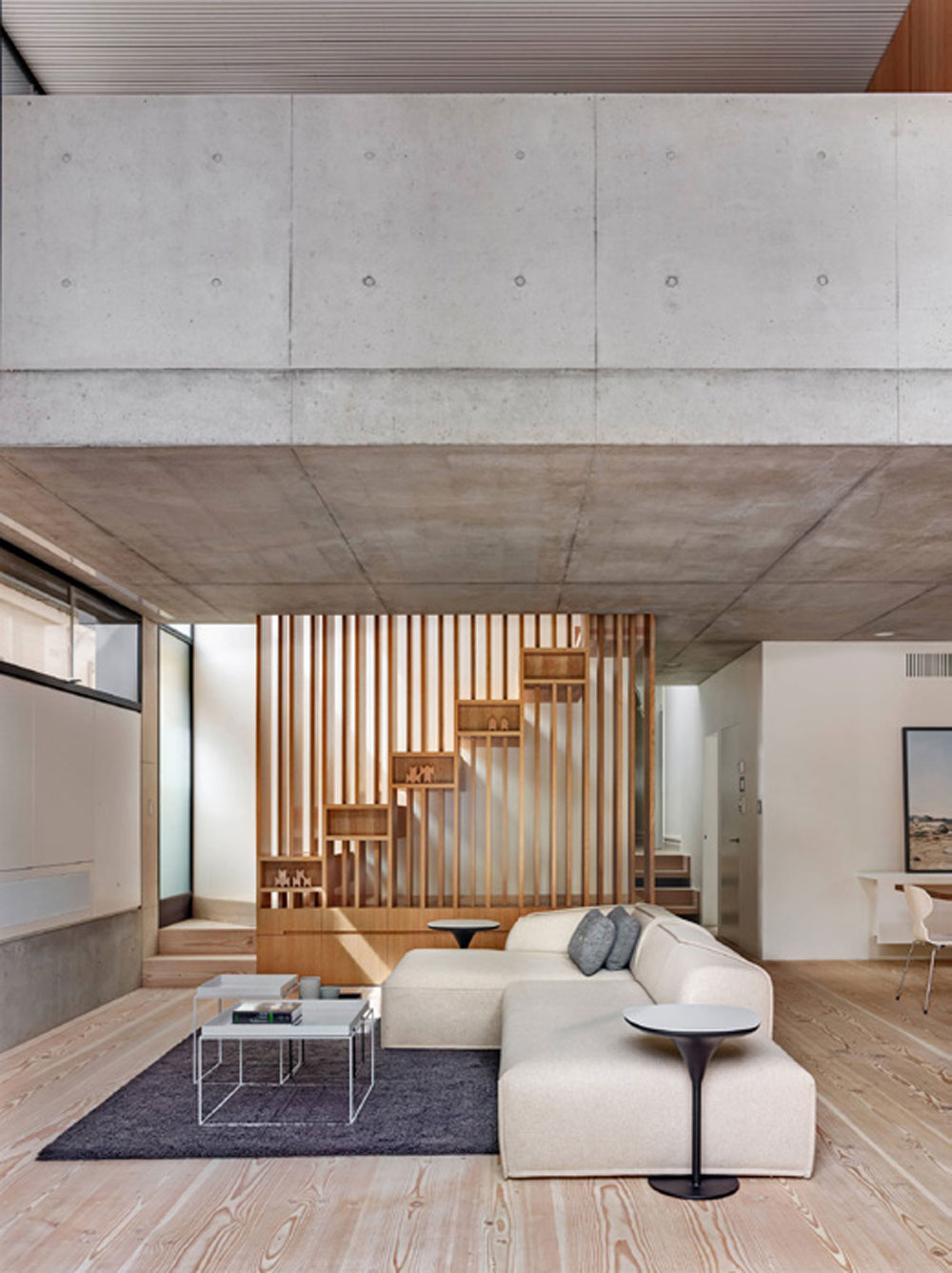
Dynamic lines, on the other hand, tend to grab the attention more than horizontal and vertical lines and may dominate the space.
Most interior designers will typically choose one kind of line as the main feature depending on the mood you want to create in a certain space.

FORM
The form is one of the seven aspects of interior design and refers to the three-dimensional forms of items in a space as well as the shape of the room itself. Forms are usually separated into geometrical forms, which are manufactured and have harsh lines and square edges, and natural forms, which are more soft and flowing and relate to how objects are found in nature.

They may also be enhanced by utilizing some of the other aspects of interior design, such as colors, patterns, and textures, all of which will be discussed more below.
Forms may also be classified as open or closed. The shape of the room itself, which you may walk into, is an example of open form, whereas the solid furniture within the space is an example of closed-form.
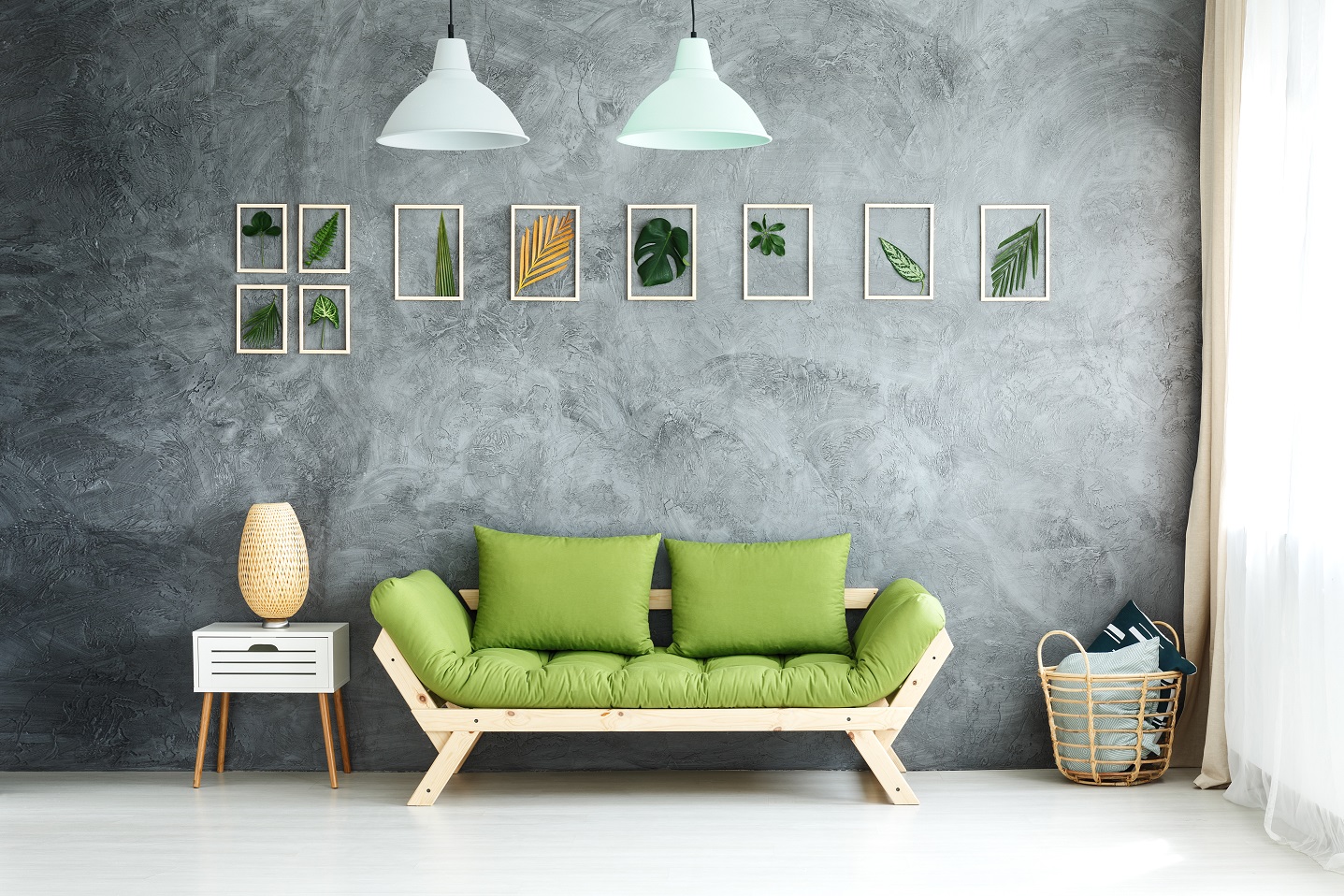
Shapes or forms may be utilized to establish harmony in interior design, however, too many shapes in one area can result in a confusing and conflicting environment.
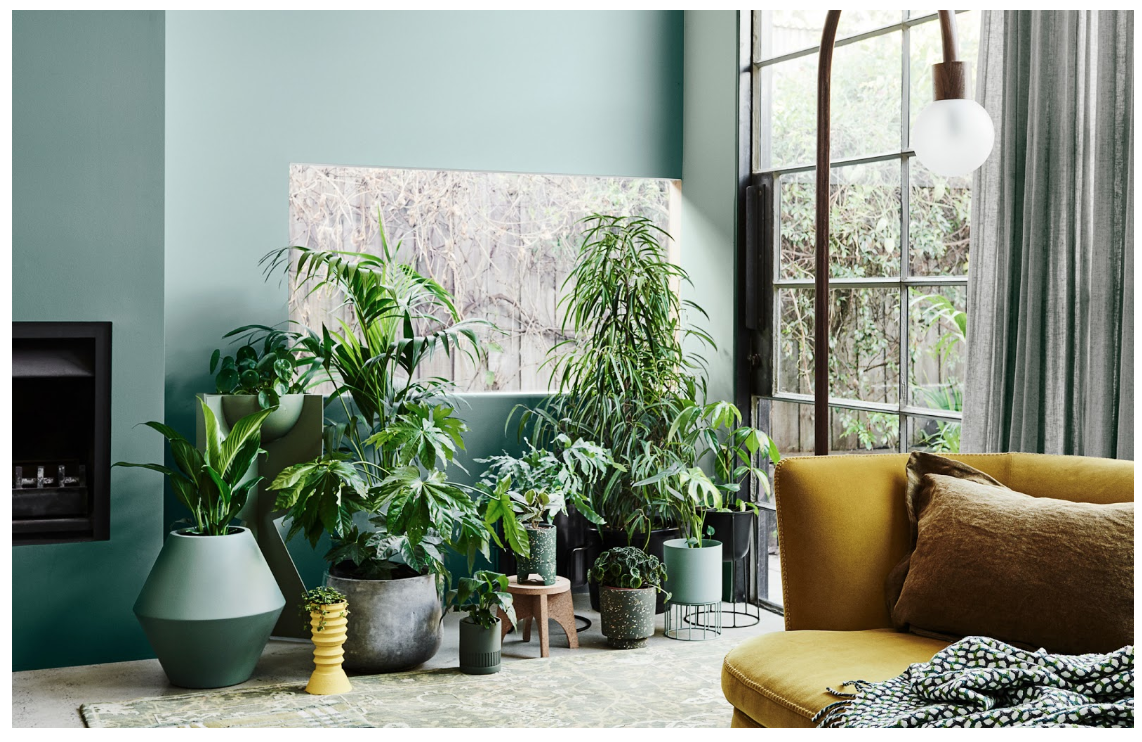
LIGHT
Form, one of the seven aspects of interior design, refers to the three-dimensional forms of items in a space as well as the shape of the room itself.
Geometrical forms, which are manufactured and have harsh lines and square edges, and natural forms, which are more soft and flowing and relate to how objects are found in nature, are the two broad categories of shapes.
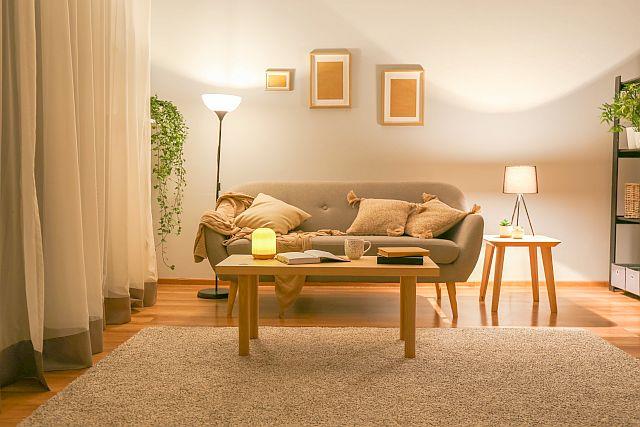
They may also be enhanced with other aspects of interior design, such as colors, patterns, and textures, which we’ll go into later.
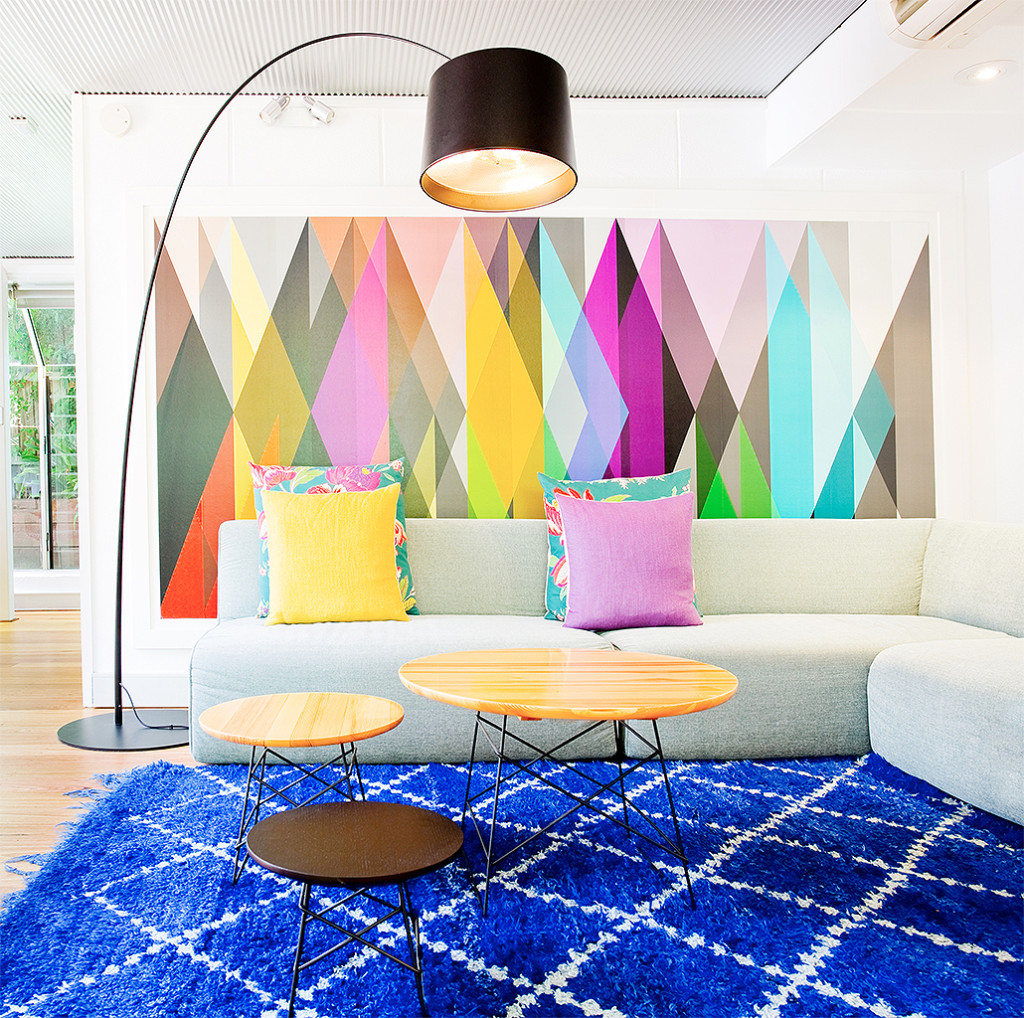
Forms may also be divided into open and closed categories. The shape of the room itself, which you may walk into, is an example of open form, while the solid furnishings inside the space are examples of closed-form.
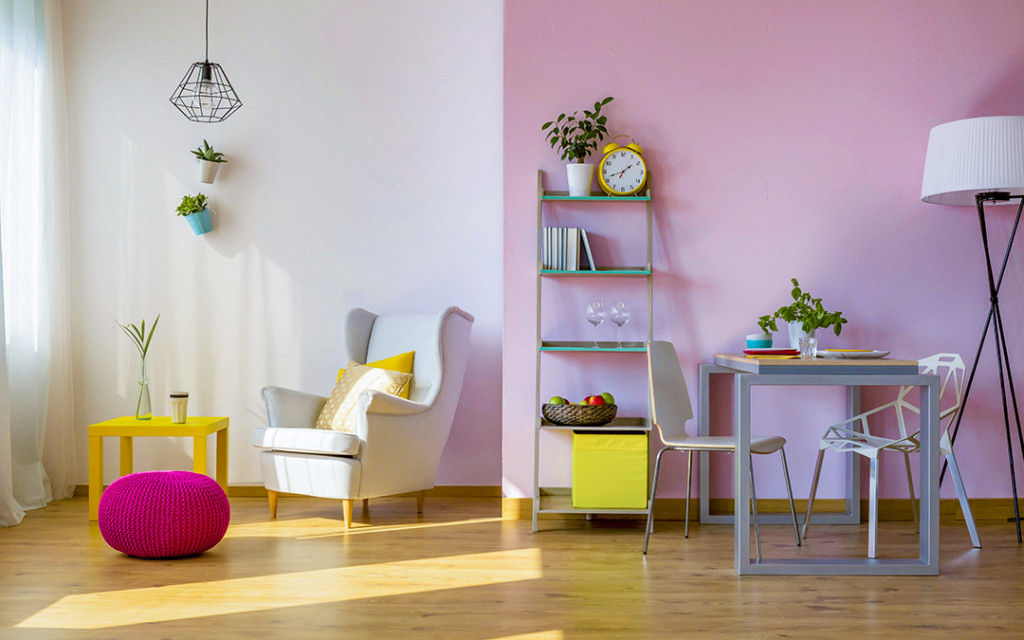
Shapes and forms may be utilized to create harmony in interior design, however, too many shapes in one area can result in a confusing and conflicting environment, keeping in mind that each fixture will give an aesthetic aspect to the rooms.
Also, Read
Low Cost Interior Design Ideas For Home
COLOUR
Colors, without a doubt, add to the visual appeal of any space. We all have certain colors that we like to wear or use to adorn our homes.
Nonetheless, according to color psychology, colors influence the attitude and personality of the inhabitants, leading us to the conclusion that certain hues are just more suitable for a harmonious environment.
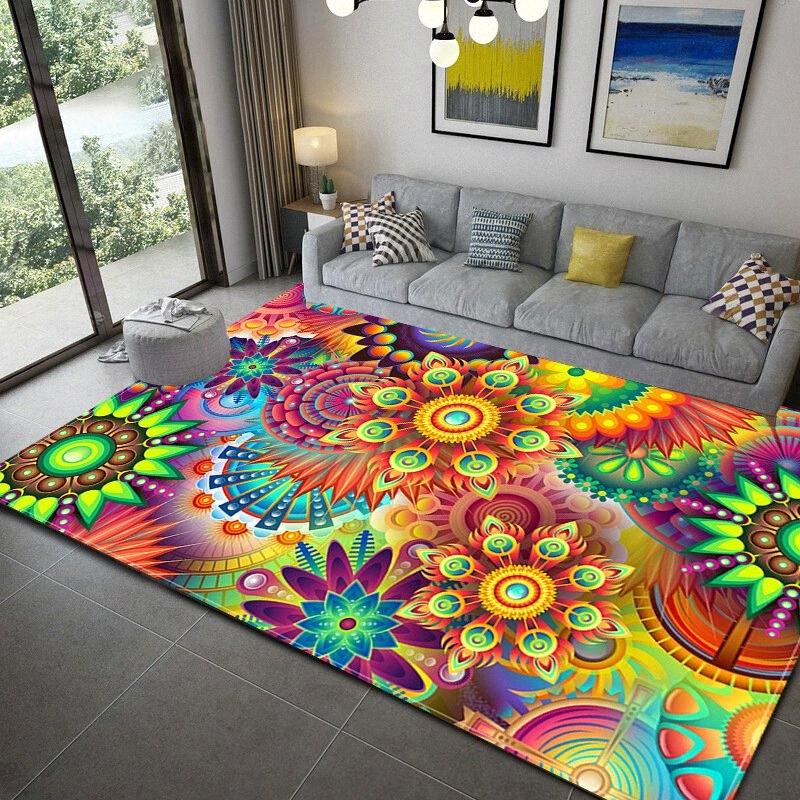
For example, red frequently stimulates hunger and is, therefore, more suited to your kitchen or dining area, while blues and greens promote peace and serenity, making them ideal for bedrooms.
Colors may be divided into two categories: main and secondary, with further sub-categories. Furthermore, each color has different colors, intensities, and values that may influence a person’s moods, emotions, recollections, as well as the size of a room.
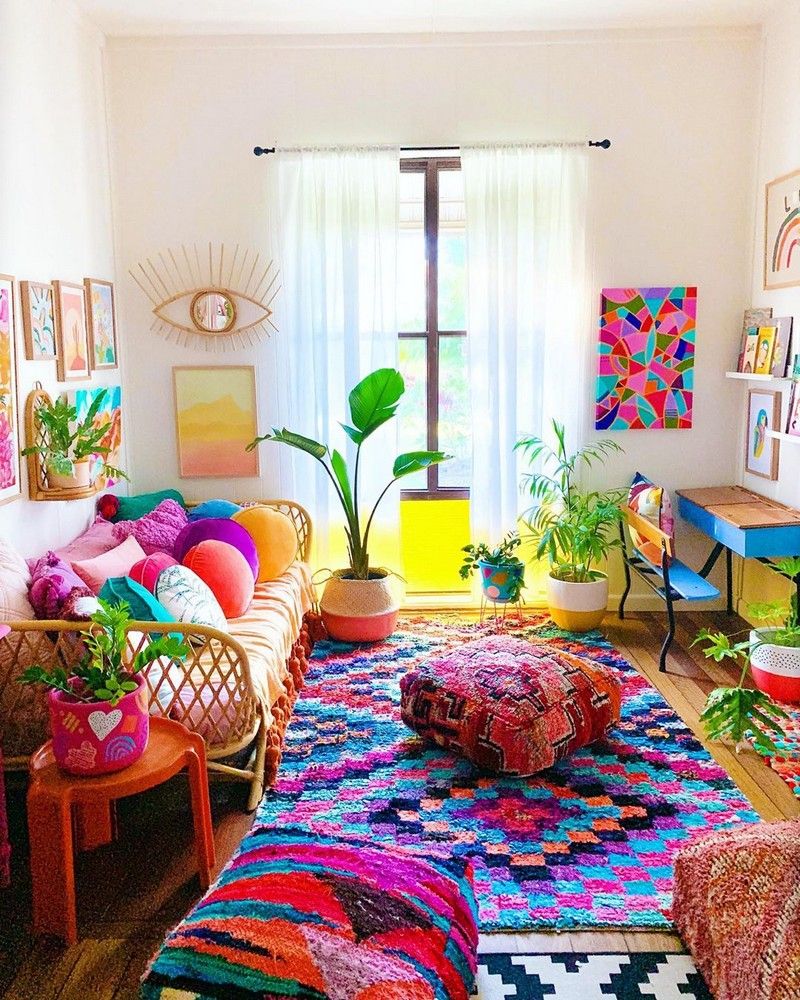
Before selecting a color scheme, identify the purpose of the room and consider the light in the interior space since gloomy rooms with darker color schemes may seem brooding or claustrophobic, while the same color scheme with brilliant lighting might appear lively.
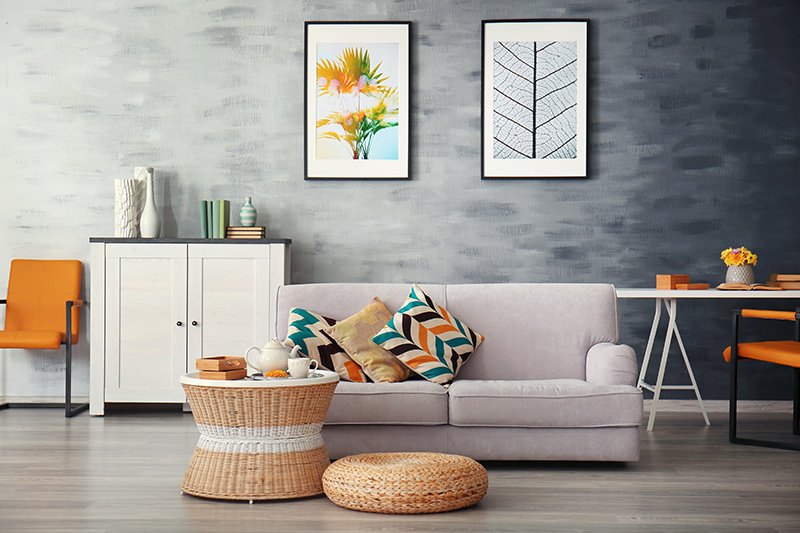
TEXTURE
Textures enter an interior design via the surface area of any item or piece of furniture.
You may achieve shiny and smooth textures with marble countertops and glass tables, soft and warm textures with fur rugs or throws, and coarse and rough textures with textiles for your furniture.

Textures, on the other hand, do not just relate to the texture of a surface when touched.
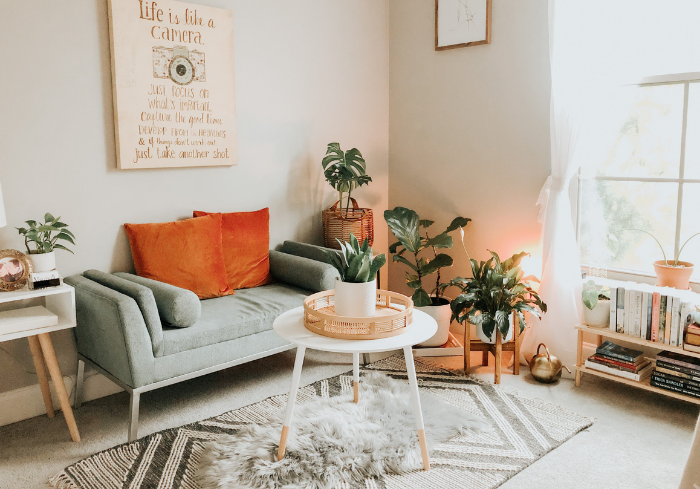
We also identify with textures visually, particularly when they are paired with patterns. A bed with a silk bedsheet and a cozy quilt, for example, is not only pleasant to the touch, but it also looks soft, comfortable, and welcoming.

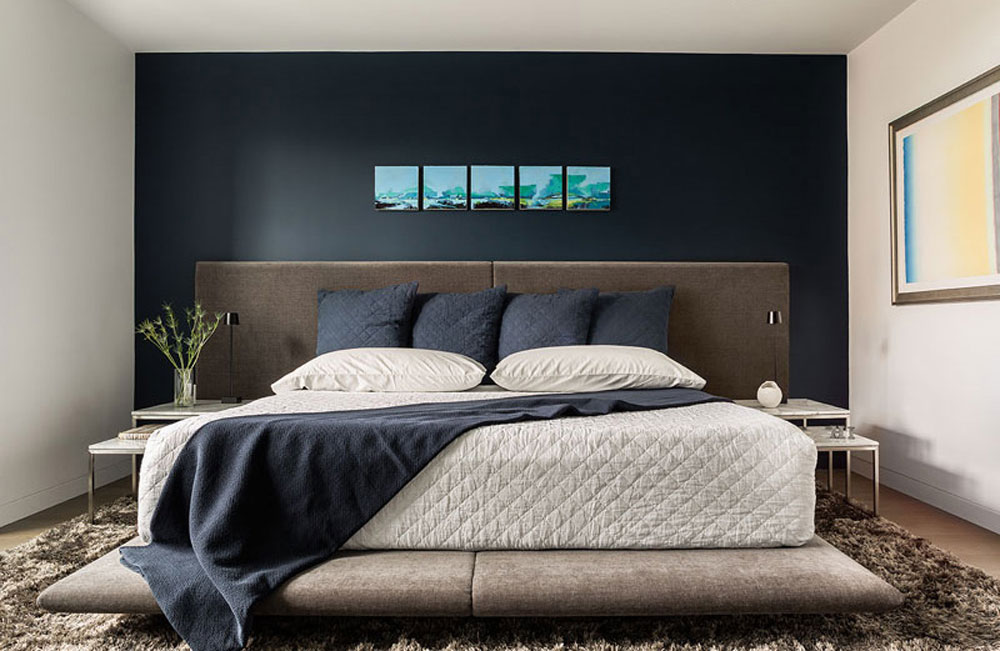
Typically integrated into houses via textiles, every room needs at least one contrasting texture to prevent monotony and provide depth to the space.
PATTERN
The pattern is the last of the seven main interior design ideas, yet it is what brings an interior to life. Stripes, plaids, florals, animal prints, geometric patterns, and motifs all have their own personality and may be found in textiles, wallpapers, paintings, carpets, or wall art.

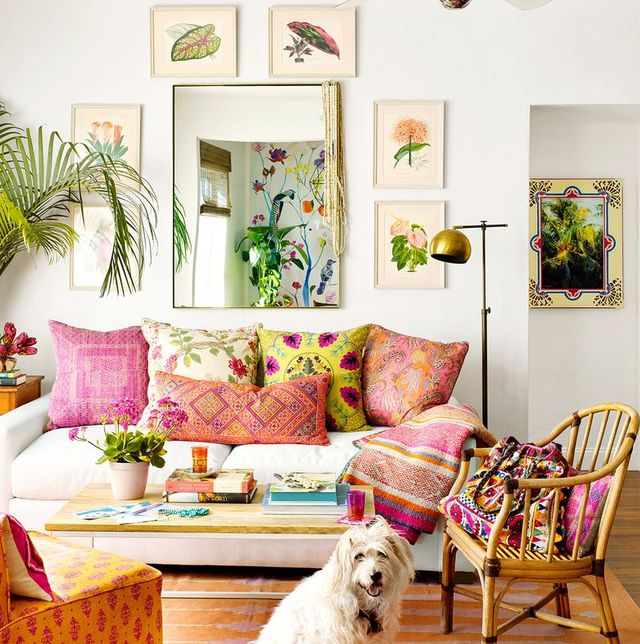
Patterns are also often repeated, providing a seamless transition throughout the space, although their colors and textures may vary.
The greatest approach to integrating patterns into the décor of your house is to know how much is enough.
Tiny designs, applied sparingly, may lighten up a small room, while big themes will overwhelm and dominate the space, making it seem cramped.

You should also choose designs depending on the interior style of the home since contemporary interiors are associated with lines, stripes, and geometric patterns. Traditional interiors, on the other hand, are heavy on flowery patterns.
Patterns may also be used to create a focal point in your space; however, for a harmonious appearance, employ no more than three patterns incomparable color schemes.
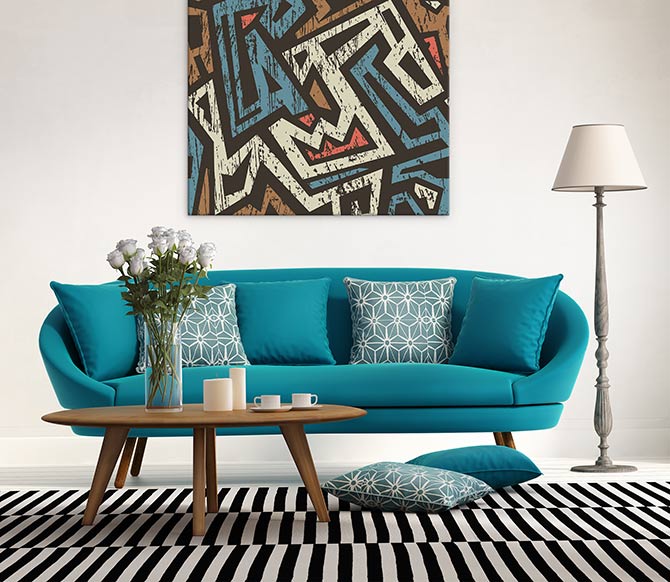
You now understand the seven main components of interior design and how to achieve a harmonic balance between them. Remember that each person may believe that one of these aspects is more essential than the others, so set aside your own preferences for the greatest outcomes.
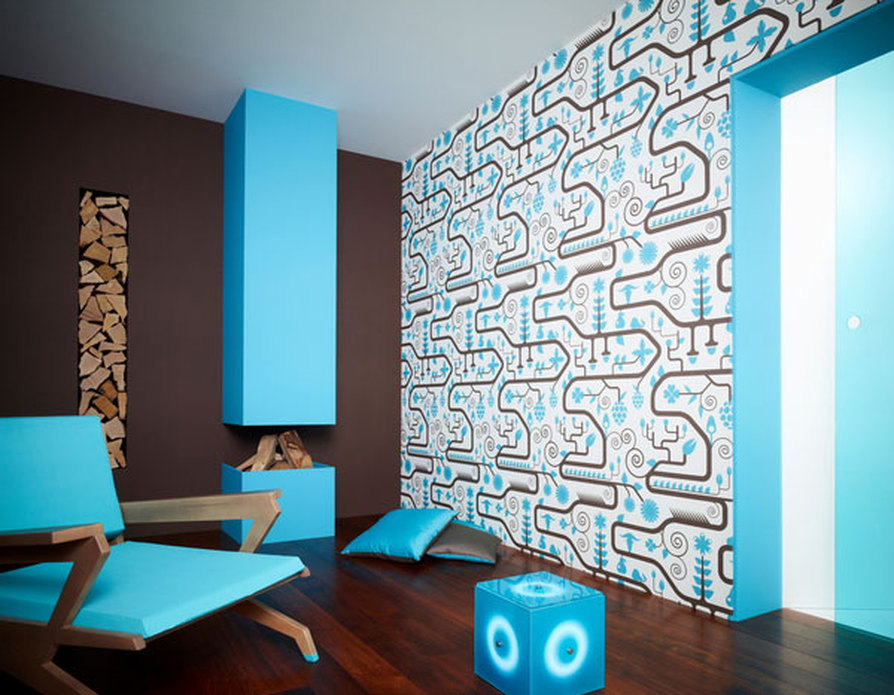
One of the most significant advantages of hiring a professional interior designer is that they will be aware of all of these aspects and will know how to balance them in the best manner possible according to your interior without being biased toward any one feature.
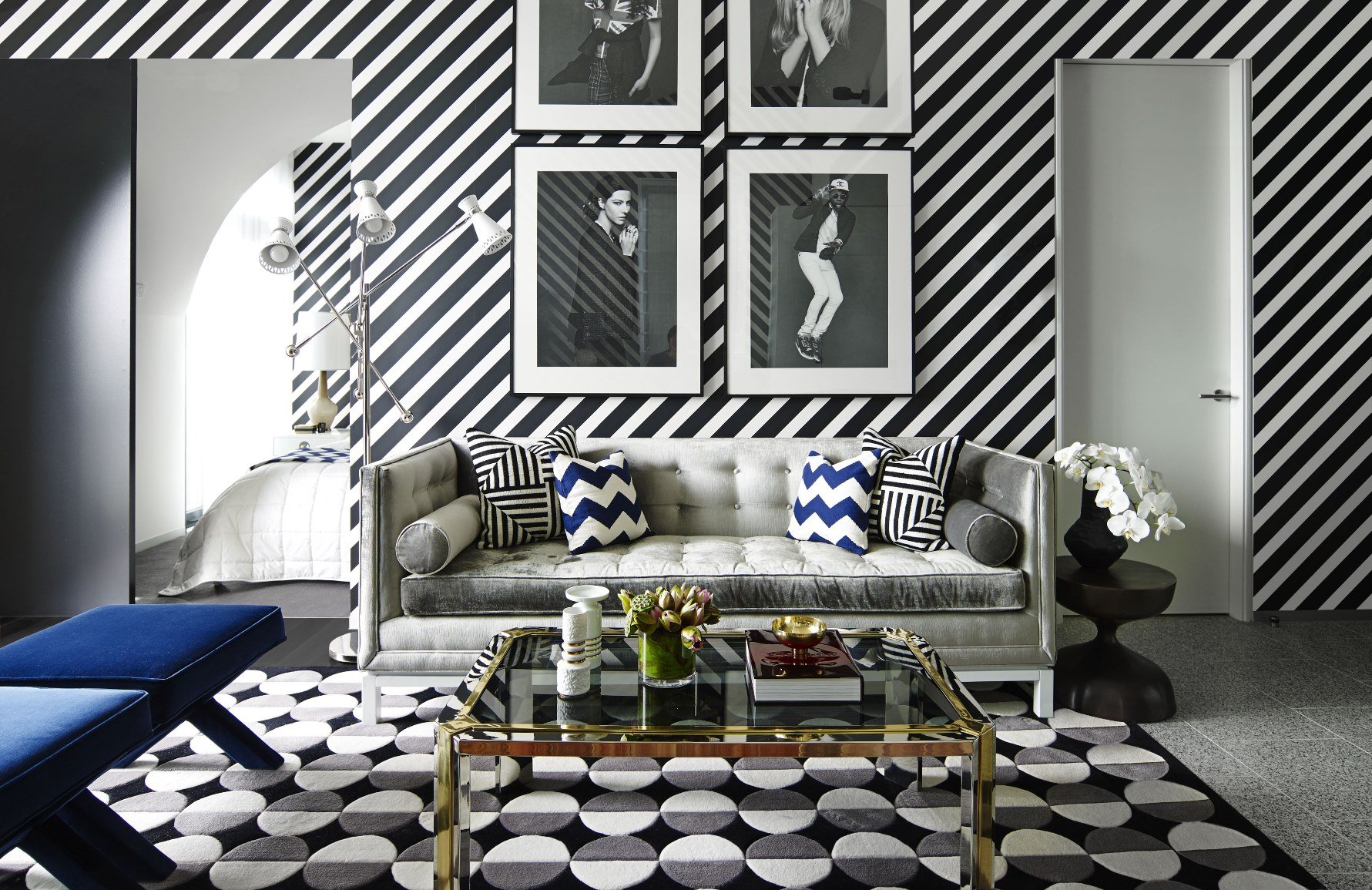
Professional designers are also aware of some of the best interior design styles to integrate into your house and can assist you in this respect. As a result, you should consider obtaining professional assistance in this issue.

Also, Read
Top Interior Design Trends For 2021
Please contact us at hello@landster.pk if you have any home décor ideas you’d like to share.
Stay tuned to Landster Site, Pakistan’s most popular lifestyle and real estate blog, for more decorating ideas. You may also follow us on YouTube channel, Facebook, Instagram, and Twitter to keep up to speed on the newest real estate trends in Pakistan.




